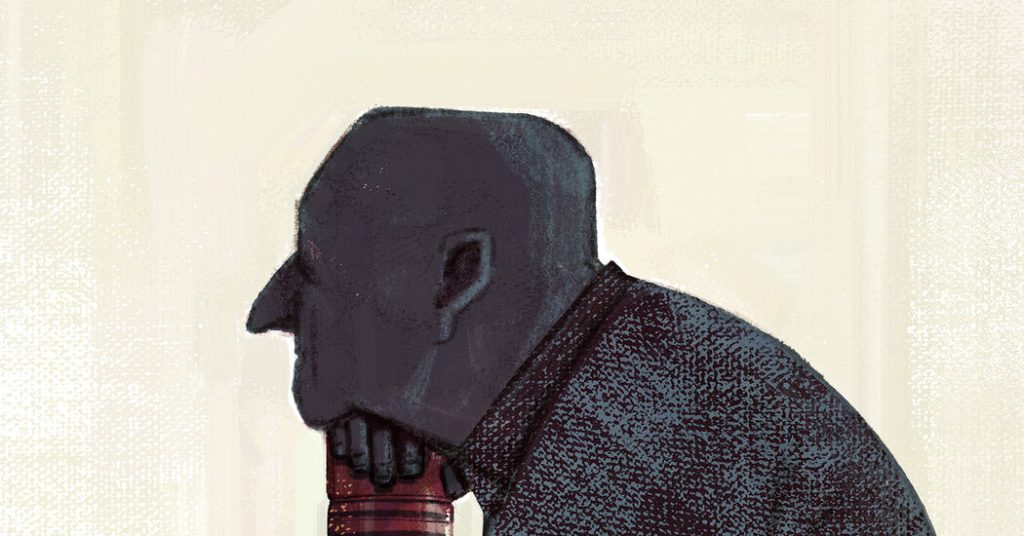The phone awakened Doug Nordman at 3 a.m., with the news that his father had been hospitalized with a perforated small intestine due to alcohol-related issues. Dean Nordman, a retired electrical engineer, had developed symptoms of dementia and was found to have been consuming a pint of Scotch a day. Public health officials are increasingly alarmed by alcohol-related deaths among older Americans, with a significant increase in such deaths among people over 55 in recent years. The hazards of alcohol, especially as people age and their bodies process it less efficiently, are often underestimated.
The pandemic, according to the Centers for Disease Control and Prevention (C.D.C.), has played a role in increased alcohol-related deaths, as people turned to drinking to cope with stress and isolation. Older adults are more likely to drink frequently, with binge drinking among older Americans increasing nearly 40 percent over the past decade. Studies show that older women, especially those who are educated and have higher disposable incomes, are more likely to drink than previous generations. While seniors may argue that they are drinking as they always have, the effects of alcohol can be more severe for older adults due to changes in metabolism and the body’s ability to process alcohol.
Alcohol use can have disastrous consequences for older adults, exacerbating existing health conditions and interacting with prescription medications commonly used by seniors. Alcohol can contribute to falls, disrupt sleep, and increase the risk of cognitive decline and certain cancers. Treatment options for excessive alcohol use, including therapy and medications, are effective for older patients, but disparities in coverage exist, particularly for Medicare recipients. Advocacy groups are working to eliminate these disparities and improve access to treatment for older adults struggling with alcohol use.
One proposed solution to combat alcohol misuse among older people is to raise the federal tax on alcohol, making it more expensive and potentially reducing consumption. Eliminating barriers to treatment and providing equal coverage for substance use disorders under Medicare could also help address the issue. Dean Nordman, who never sought treatment for his drinking, experienced improvements in his mood and sociability after his sons moved him to a nursing home where he was unable to access alcohol. His son, Doug, who had previously been a heavy drinker, decided to quit alcohol after witnessing his father’s decline and recognizing the potential consequences for his own health.
In conclusion, the increase in alcohol-related deaths among older Americans is a growing public health concern, with older adults facing unique challenges related to alcohol use. The effects of alcohol can be more severe for seniors due to changes in metabolism and interactions with prescription medications commonly used by this population. Addressing disparities in access to treatment and considering policy changes such as raising the federal tax on alcohol are potential strategies to combat alcohol misuse among older adults. Individuals, like Doug Nordman, who have witnessed the consequences of alcohol use firsthand, may choose to make lifestyle changes to protect their health and well-being.


